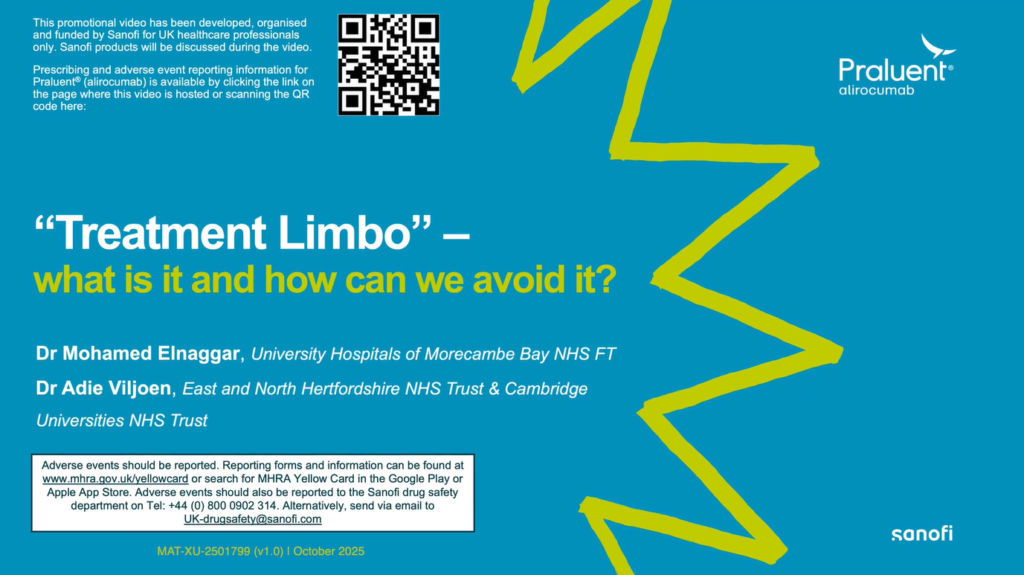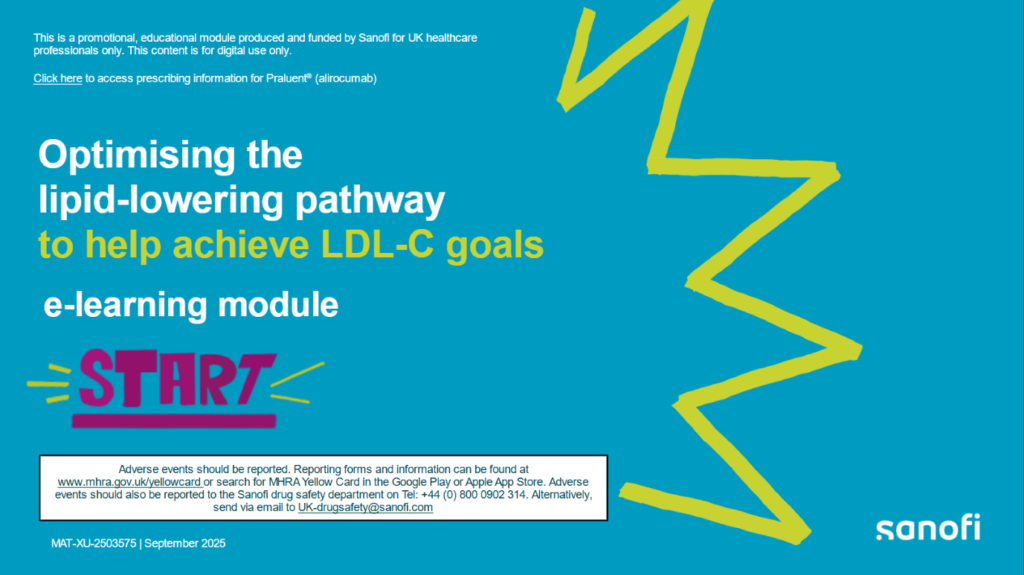This promotional resource site has been developed, organised and funded by Sanofi for UK healthcare professionals only. Sanofi products are discussed on this site. Editorial support for this site has been provided by OmniaMed Communications. The media partners for this site are The British Journal of Cardiology and Diabetes on the net. The British Journal of Cardiology and Diabetes on the net have had no input into the content of this site.
Prescribing information for Praluent® (alirocumab) and adverse event reporting information is available at the bottom of this page.



Staying on track:
Optimising the lipid-lowering pathway whilst avoiding treatment limbo
Resource hub

Welcome

Cardiovascular disease is a major cause of morbidity, disability, and health inequalities, costing the NHS billions each year.1 Raised low-density lipoprotein cholesterol (LDL-C) is a key modifiable risk factor, yet many patients remain suboptimally treated, despite effective therapies.1,2 With the NHS 10-Year Health Plan prioritising prevention through earlier detection, wider community testing, and better lipid management, now is the time to optimise care.3

In this on-demand resource site, our expert speakers explore the landscape of dyslipidaemia management and share insights from the innovative lipid-lowering pathway developed by Morecambe Bay NHS Trust, giving you actionable strategies to help your patients achieve LDL-C targets and reduce cardiovascular risk.4
Full video

29:32
In this video, our expert speakers explore the current landscape of lipid management and introduce an alternative approach to managing dyslipidaemia, focusing on optimising the patient treatment journey and preventing patients from falling into treatment limbo.
Through case-based discussions, they explore the limitations of the traditional step-wise approach to lipid-lowering therapy and highlight how proactive and strategic sequencing of therapies can support efficient achievements of LDL-C targets and help reduce long-term cardiovascular risk.
Further resources
Bitesize video

"Treatment Limbo" – what is it and how can we avoid it?
In this short video, Dr Adie Viljoen and Dr Mohamed Elnaggar explore the challenge of “Treatment Limbo,” where patients with dyslipidaemia fail to achieve LDL-C targets yet remain ineligible for advanced therapies. They introduce a guideline-aligned, alternative approach that tailors treatment to baseline LDL-C and distance to goal, supporting timely intervention and helping to reduce the risk of recurrent cardiovascular events.
E-learning module
Optimising the lipid-lowering pathway to help achieve LDL-C goals
In this CPD-accredited, interactive e-learning module we’ll explore the key principles of lipid management, including current guidelines, LDL-C targets and pharmacological treatment options. We’ll also examine a novel, patient-centred lipid-lowering pathway developed by Morecambe Bay NHS Trust, which uses a distance-to-goal approach to guide timely, appropriate escalation of treatment based on individual patient profiles and lipid targets.
Speakers

Chair: Dr Rani Khatib
Consultant Pharmacist in Cardiology & Cardiovascular Research; Leeds Teaching Hospitals NHS Trust
See more
Rani Khatib is Associate Professor at the Leeds Institute of Cardiometabolic Medicine, University of Leeds, and Consultant Pharmacist in Cardiology and Cardiovascular Research, based at Leeds Teaching Hospitals NHS Trust.
He leads multiple regional and national cardiorenal metabolic risk and medicines optimisation services, and is the national clinical champion for PCSK9 inhibitors and lipids optimisation at NHS England. He is a contributor to NICE’s 2023 heart failure guidelines and quality standards, and is a board member of the European Society of Cardiology’s council of hypertension.
His areas of interest include cardiovascular disease prevention, cardiorenal metabolic disease, lipid optimisation, post-myocardial infarction care, medicines adherence, person-centred care, ischaemic heart disease, heart failure, atrial fibrillation, anticoagulation, and hypertension.

Dr Mohamed Elnaggar
Consultant Endocrinologist and Lipidologist and Lipids Lead, University Hospitals of Morecambe Bay NHS Foundation Trust
See more
Mohamed Elnaggar achieved his medical degree and then completed his residency in the Diabetes and Lipidology Department in the Alexandria Faculty of Medicine in Egypt. He has always been involved in lipidology teaching and research as a lecturer at Alexandria University.
Since arriving to the UK, Dr Elnaggar has set up and currently leads the lipid service in the University Hospitals of Morecambe Bay NHS Foundation Trust. Currently, he has also been appointed Clinical Lipid Lead for South Cumbria and Lancashire and has been leading the development of local pathways and guidelines to improve local lipid services.
Dr Elnaggar is the principal investigator for several lipid-related trials and is invested in research involving newer lipid-lowering therapies.
He has been participating in local, national and international speaking and teaching events and is very keen on education and sharing of best practice.

Dr Adie Viljoen
Consultant Lipidologist, Metabolic Physician & Honorary Consultant; Cambridge Universities NHS Trust
See more
Adie Viljoen has worked as a consultant in the NHS for more than 15 years and runs cardiovascular risk clinics in several counties. He is the program director for metabolic medicine training in the East of England and a senior lecturer in medicine at the University of Hertfordshire.
He conducts numerous clinical phase 2, 3 and 4 trials in lipids, diabetes and obesity and has been the UK chief investigator and key signatory for several of these studies.
Dr Viljoen has authored more than 150 papers in peer-reviewed medical journals, including The Lancet, Diabetes Care, and Atherosclerosis. He is the author of several chapters in medical textbooks. He has also co-authored a book on cardiovascular risk.
He has served as a topic expert for various reviews by NICE and its quality standards and technology appraisals. He received an award for clinical excellence from the UK NHS in 2022.
References
- NHS England. Improving lipid management to reduce cardiovascular disease and save lives. 2023. Available at: https://www.england.nhs.uk/long-read/improving-lipid-management-to-reduce-cardiovascular-disease-and-save-lives/ [accessed October 2025].
- Mach F et al. Eur Heart J. 2020;41:111–188.
- NHS England. Fit for the Future: The 10 Year Health Plan for England. 2025. Available at: https://assets.publishing.service.gov.uk/media/68760ad755c4bd0544dcae33/fit-for-the-future-10-year-health-plan-for-england.pdf [accessed October 2025].
- Elnaggar M et al. Curr Med Res Opin. 2024;40:1673–1683.
Click here to access prescribing information for Praluent® (alirocumab).
Adverse events should be reported. Reporting form and information can be found at www.mhra.gov.uk/yellowcard or search for MHRA Yellow Card in the Google Play or Apple App Store. Adverse events should also be reported to the Sanofi drug safety department on Tel: +44 (0) 800 0902 314. Alternatively, send via email to
[email protected].
MAT-XU-2503948 (v2.0) | December 2025



